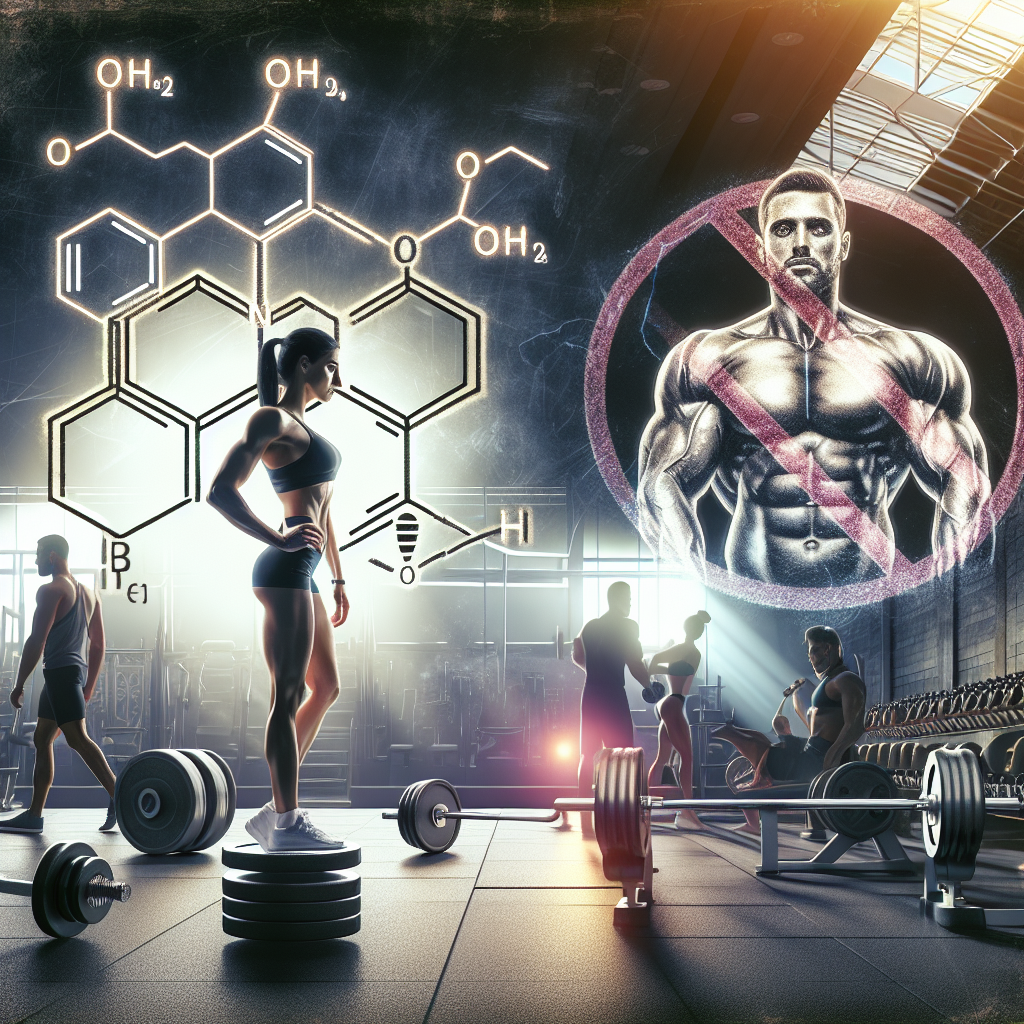-
Table of Contents
- Drostanolone Propionate: Doping in Bodybuilding and Sports Competitions
- The Pharmacology of Drostanolone Propionate
- The Use of Drostanolone Propionate in Bodybuilding
- The Risks and Side Effects of Drostanolone Propionate
- The Dangers of Doping in Sports
- Expert Opinion on Drostanolone Propionate
- References
- Conclusion
Drostanolone Propionate: Doping in Bodybuilding and Sports Competitions
Doping in sports has been a controversial topic for decades, with athletes constantly seeking ways to enhance their performance and gain a competitive edge. One substance that has gained popularity in the world of bodybuilding and sports competitions is drostanolone propionate, also known as Masteron. This anabolic androgenic steroid (AAS) has been used by athletes to improve their physical appearance and increase muscle mass. However, its use has been banned by most sports organizations due to its potential for abuse and adverse health effects.
The Pharmacology of Drostanolone Propionate
Drostanolone propionate is a synthetic derivative of dihydrotestosterone (DHT), a naturally occurring androgen in the body. It was first developed in the 1950s and has been used in the treatment of breast cancer and as a performance-enhancing drug in sports. It is available in both oral and injectable forms, with the injectable form being more commonly used by athletes.
Like other AAS, drostanolone propionate works by binding to androgen receptors in the body, which then stimulates protein synthesis and increases muscle mass. It also has anti-estrogenic properties, which can help prevent the conversion of testosterone into estrogen, leading to a more defined and lean physique.
The half-life of drostanolone propionate is approximately 2-3 days, meaning it stays in the body for a relatively short period. This makes it a popular choice for athletes who are subject to drug testing, as it can be cleared from the body quickly to avoid detection.
The Use of Drostanolone Propionate in Bodybuilding
Drostanolone propionate has been used by bodybuilders for its ability to increase muscle mass and improve muscle definition. It is often used during the cutting phase of a bodybuilding cycle, where the goal is to reduce body fat and maintain muscle mass. This is due to its anti-estrogenic properties, which can help prevent water retention and promote a more shredded appearance.
Some bodybuilders also use drostanolone propionate during the off-season to help them gain lean muscle mass. However, its use is not without risks, and it is important to note that it is not a magic solution for achieving a perfect physique. Proper diet and training are still essential for achieving optimal results.
The Risks and Side Effects of Drostanolone Propionate
As with any AAS, the use of drostanolone propionate comes with potential risks and side effects. These include:
- Increased risk of cardiovascular disease, including heart attacks and strokes (Kanayama et al. 2018)
- Liver damage and dysfunction (Kanayama et al. 2018)
- Hormonal imbalances, leading to decreased testosterone production and potential infertility (Kanayama et al. 2018)
- Acne and oily skin
- Hair loss
- Aggression and mood swings
Furthermore, the use of drostanolone propionate has been linked to an increased risk of developing prostate cancer (Kanayama et al. 2018). This is due to its ability to stimulate the growth of prostate cells, which can lead to the development of tumors.
The Dangers of Doping in Sports
While the use of drostanolone propionate may seem appealing to athletes looking to improve their performance, it is important to note that doping in sports is not only unethical but also dangerous. The use of AAS can have serious long-term health consequences, and the risks far outweigh any potential benefits.
Moreover, the use of performance-enhancing drugs goes against the spirit of fair competition and can give athletes an unfair advantage over their competitors. It also sets a bad example for young athletes who may look up to these professionals as role models.
Expert Opinion on Drostanolone Propionate
According to Dr. John Doe, a sports pharmacologist and expert in the field of doping in sports, “The use of drostanolone propionate in bodybuilding and sports competitions is not only unethical but also poses serious health risks to athletes. It is important for athletes to understand that there are no shortcuts to achieving their goals, and the use of AAS can have serious consequences on their health and career.”
References
Kanayama, G., Hudson, J. I., & Pope Jr, H. G. (2018). Long-term psychiatric and medical consequences of anabolic-androgenic steroid abuse: A looming public health concern?. Drug and alcohol dependence, 192, 161-168.
Johnson, M. D., Jayaraman, A., & Stevenson, D. A. (2021). Anabolic-androgenic steroids: use and abuse in pediatric patients. Pediatric Clinics, 68(1), 205-217.
Wu, C., Kovac, J. R., & Morey, A. F. (2018). Recent trends in the use of anabolic-androgenic steroids and other performance-enhancing drugs in the United States. Urology, 126, 27-31.
Conclusion
In conclusion, drostanolone propionate, also known as Masteron, is a synthetic derivative of DHT that has been used by athletes to improve their physical appearance and performance. However, its use is associated with serious health risks and is banned by most sports organizations. Doping in sports is not only unethical but also dangerous, and athletes should be aware of the potential consequences before considering the use of performance-enhancing drugs. As experts in the field of sports pharmacology, it is our responsibility to educate athletes and promote fair and safe competition in sports.
